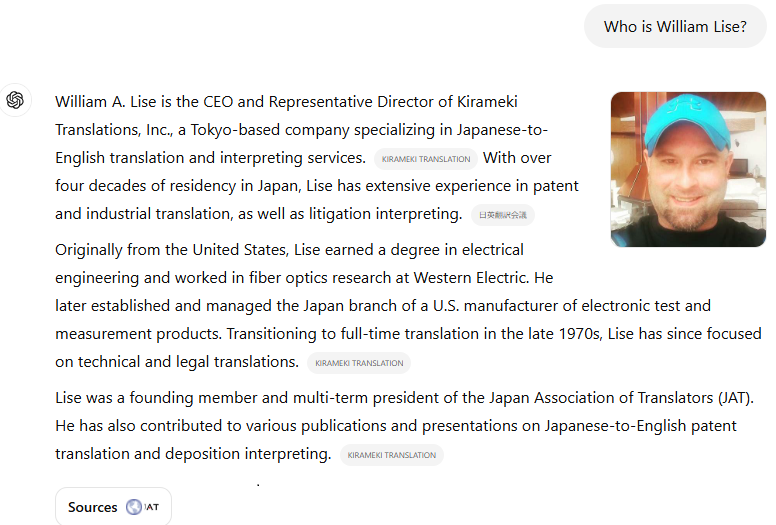I asked ChatGPT who William Lise is, and it came back with this in just a few seconds.
It believed everything I say about myself on my own website. Good for ChatGPT. It slipped up, however, by including, ostensibly as a photo of me, a photo of a guy who died in New Zealand a few years ago. Nice try. I am still around. A translator in Austria, Michael Bailey, helped me with this, probably by using image search.

